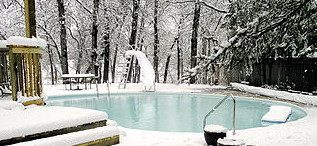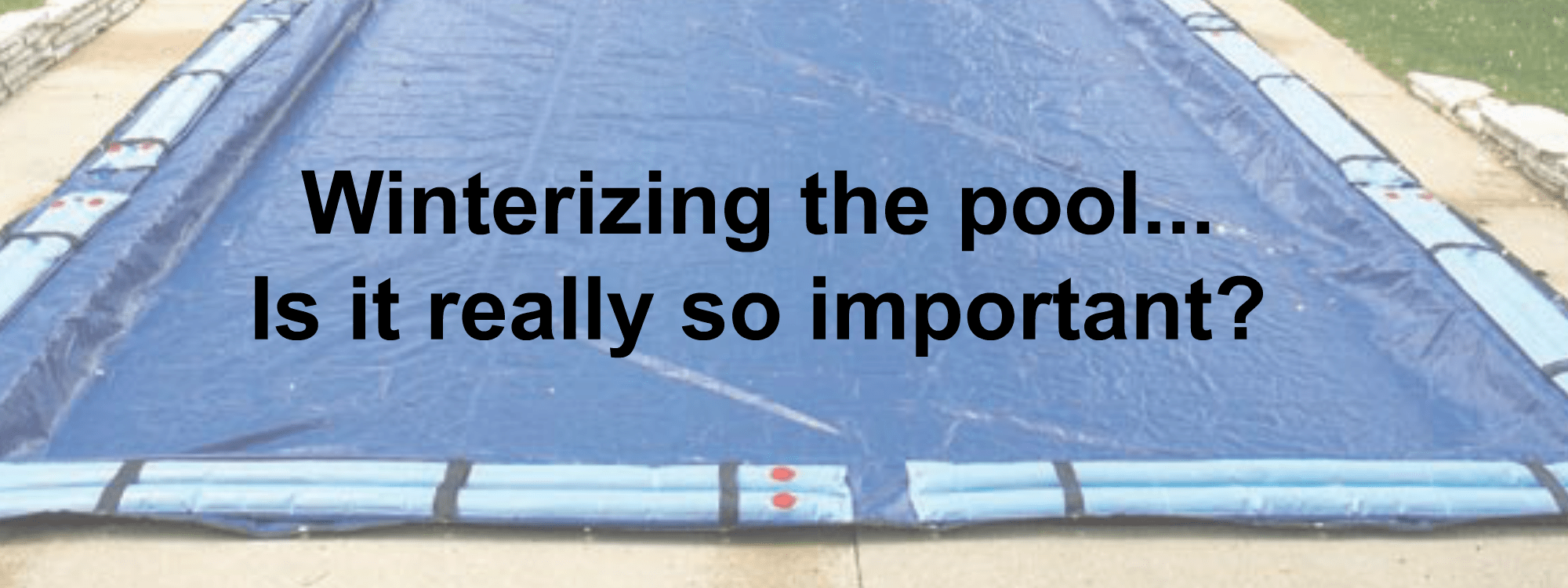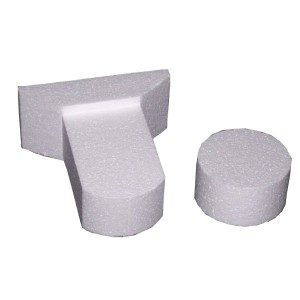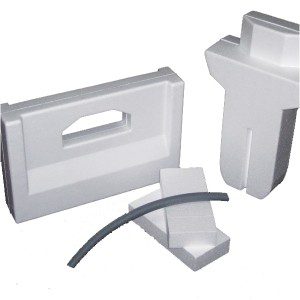Well that time is upon us, the leaves are changing color, pumpkin pies are baking, apple cider is brewing, and the nights are cooler. Autumn is here and it’s time to start thinking about winterizing the pool. UGH! Is it really that important to winterize the pool?

Pools that are not properly winterized are vulnerable to:
- Freeze / Thaw damage to surfaces
- Liner Wrinkles
- Damaged or broken equipment
- Underground pipe damage
Pool owners who have undergone such repairs are often surprised to learn how easily the damage could have been avoided.
So why is winterizing so important? Read on to learn the reasoning behind the process.
- Checking the pool and surrounding area for leaks. – It is cheaper to address a leak in the fall than in the spring when you may end up losing all the water in the pool.
- Balancing the water. – This step is important to protect your liner from wrinkles and premature aging throughout the winter months. A new liner is expensive.
- Cleaning your pool, your filter media, and your salt cell if you have a salt generator. – Cleaning the filter media and salt cell will improve the longevity and efficiency of the equipment.
- Cleaning and storing your solar blanket. – You cannot use a solar blanket in place of a winter cover. Be sure to use a good cleaner that will deter rodents and mold throughout the winter.
- Adding winter closing chemicals. – These chemicals are specially formulated to help remove swimmer waste, kill and control algae all winter long. They protect the pool, control scale formation on surfaces, piping and equipment and will prevent staining caused by iron, copper and manganese.
- Partially draining the pool, to just below the return lines. – With our winter temperatures dropping as low as they can here in the Maritimes, we need to do this in order to prevent freezing issues and causing cracks.
- Setting the filter dial valve to “winter” or the handle down at a neutral position and remove the drain plug in order to have the water drain before the winter. Leave the drain plug off for the winter months, if there is any water in the filter and it freezes the ice can expand and cause cracking.
- Adding a high grade, lubricating, -50 degree Celsius anti-freeze to your pump and pool lines. – Anti-Freeze will prevent the pump from seizing and will keep cracks from forming in the lines.
- Using a winter cover. – A winter cover serves several purposes. It protects the liner from tearing due to fallen debris during storms. It will keep out leaves, which can break down into tannins and cause staining. It will also prevent an ugly mess in the spring as the expense of cleaning up the algae, staining, and smelly water can be quite high.
- Using a Styrofoam plug in your skimmer. – This high density foam meant to keep the water / ice out of the skimmer, which was a major problem last winter.
The most common question I am asked regarding winterizing is “Do I really need a winter cover? Isn’t that what caused most of the above ground pool damage a few years back?” After doing all of the spring inspections Ryan determined that 95% of the pool damage was not caused by the client’s winter cover, but by the skimmer. The weight of the water and snow during the flash freezing we had that winter, along with ice expansions caused the skimmers to buckle and damage the walls. It was not an issue with the covers at all. This being said, if you do notice the walls are starting to cave in at the top, you can cut the wire to the winter cover so it is not as taut.

For in-ground pools we recommend mesh safety covers for the security of our children and animals. For above ground pools we use the enviro-mesh or ultimate cover to elevate stress and standing water. Both covers make for clean and quick spring openings.
So is winterizing your pool really that important? We think so. Taking the time to winterize the pool now will save you time and money on unnecessary repairs in the future.
For more information please visit our website: http://www.rrpools.ca/resources/offers/pool-closing-procedures/ .



